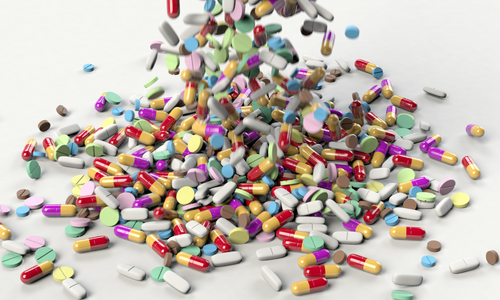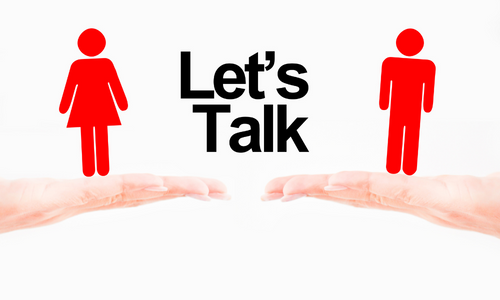Processed Food Addiction And Mental Health | Part 3

Issue No. 46 | Brought to you by the Addiction Reset Community – ARC
Unlocking the secrets of processed food addiction and guiding you to find freedom from food and weight obsession.

21 Sources of Depression & Anxiety… contd.
In the last issue of this newsletter, we introduced how processed foods are highly addictive drug-like substances that can alter the brain. We also looked at 7 of the 21 sources of depression and anxiety and outlined how the Addiction Reset Community can be used to address each source.

In this issue we will continue to review the sources of depression and anxiety, namely:
- Stressful Media
- Medications
- Medical advice
- Therapy/Counseling
- Gut-brain connection
- Finances
- Weight-loss
Stressful Media
In addition to the triggering commercials which drive stressful cravings, media also promotes the desire to be thin, which can cause stress and lead to anxiety and depression. Social media often presents a ‘perfect-life” façade, through the lens of influencers, which is not realistic for most people to achieve. Chasing an elusive dream life can lead to feelings of loneliness, panic and despair.
The Addiction Reset Community offers more than 17 hours a day of positive connection time on Zoom. Engagement with kind, compassionate people and using effective tools to build self-value and confidence, relieves the harmful effects of stressful media messaging.
Medications
Depression is a side-effect of at least 200 common drugs.
The ARC helps members to transition to greater self-care which includes better sleep, regular movement, eating real food, and abstaining from harmful processed foods, which are associated with over 100 illnesses and diseases. Clean eating may resolve a wide array of medical problems and could reduce the reliance on depression-inducing drugs. Importantly, adjustments to medications must be made in consultation with your prescribing medical advisor.

Inappropriate Medical Advice
Medical advisors sometimes blame patients for failed treatments which can lead to guilt, shame and anxiety about their health.
The Addiction Reset Community provides tools to assist members to abstain from harmful processed foods and improving their health. In the ARC, discussions about scientific research showing some of the real causes of health problems and this relieves the self-blame and guilt. Members also use ARC tools to build their confidence to advocate for themselves and to have effective, collaborative conversations with their medical advisors about their treatments.
Therapy/Counseling
Addicted brains are highly stressed from cravings and artificial adrenalin. They have a lot going on with the reward center being cued to crave and repeated failed attempts by the frontal lobe to put the brakes on overeating. There is an ongoing, stressful tussle in the addicted brain. Adding stressful therapy and trauma memories, particularly before you’re ready, can make the situation worse.
In the ARC, members are encouraged to move through painful memories and childhood trauma at their own pace. The ARC supports members to eat clean while building the mental and emotional capacity to process painful thoughts, whenever they feel ready. The ARC member’s own voice of wisdom shows the way and the ARC provides a wide variety of opportunities and tools for processing thoughts and feelings gently.

Processed foods have malicious microorganisms in the gut, which cause dysfunction in neural, hormonal, immune and metabolic pathways. These can directly affect mood and mental well-being.
In the ARC members can use the food rotation tools and strategy to build the best food plans for themselves. Becoming more in tune with the foods that trigger undesirable physical and mental responses, makes it easier to eliminate them, and achieve relief.
Finances
Processed foods drain our finances in dozens of ways. From direct spending on the food itself, to uncontrolled spending on co-addictions and increased medical bills due to ill health.
The ARC provides members with useful tools and support in small groups to develop the skills to pay off debt, save money and be confident about managing money.

Self-blame
Our culture promotes broken support programs and then blames us when they don’t work. The guilt and shame of being held responsible for a failed program that would never have worked in the first place, cause immense stress and can lead to increased anxiety and depression.
The Addiction Reset Community uses proven, science-based techniques and tools within a compassionate and reassuring environment. You are never blamed or shamed but instead, are provided with kind support to recover at your own pace. In the ARC, you are empowered to be confident in your own recovery process and to never quit, regardless of the challenges you may face along the way. You are not alone!
… to be continued in the next issue.

Within the Addiction Reset Community (ARC) our members and their journeys are important to us. We find their stories inspiring and hopeful for everybody in health recovery.
“I felt comfortable right from the beginning. No hurries. Relax, all I have to do is do an easy activity or listen to a call. I can choose the things that fit into my day easily. No one ever said it would be easy, but I have to tell you, this is pretty darn easy.”

Many people reach out to Joan asking for advice and assistance on how they can begin their recovery journey.
Dear Joan:
I’ve been trying to quit sugar and processed food for the past 2 years. But even after a month or two of eating clean, I still have days where I just can’t stop overeating or binging on processed food. Why is it taking so long to get control over my food?
Joan responds:
Ending loss of control takes a long time because the food industry has been teaching the reward pathways in our brains to crave for decades. By putting addictive sugars, excessive salt, and fat into our food and addicting our reward pathways, and then surrounding us with advertising and availability, the processed food industry has deeply addicted our brains. It could take years to reteach those brain cells to stop craving and stay calm when stimulated by advertising and availability. It is critical to learn recovery skills and be immersed in supportive recovery messaging as a means of retraining the brain and regaining control.
DISCLAIMER:
Dr Joan Ifland (PhD) is a global expert on the subject of processed food addiction and is not a medical doctor. Information and response shared in this Newsletter are not intended for, and should not be construed as medical advice.
Do you have a question? Reach out to us with your questions about food addiction and recovery at gethelp@foodaddictionreset.com
Are you showing signs of Processed Food Addiction? Take this self-quiz to find out now!
Recent copies of Dr Joan Ifland's Blog:
Issue 01 | Issue 02 | Issue 03 | Issue 04 | Issue 05 | Issue 06 | Issue 07 | Issue 08 | Issue 09 | Issue 10 | Issue 11 | Issue 12 | Issue 13 | Issue 14 | Issue 15 | Issue 16 | Issue 17 | Issue 18 | Issue 19 | Issue 20 | Issue 21 | Issue 22 | Issue 23 | Issue 24 | Issue 25 | Issue 26 | Issue 27 | Issue 28 | Issue 29 | Issue 30 | Issue 31 | Issue 32 | Issue 33 | Issue 34 | Issue 35 | Issue 36 | Issue 37 | Issue 38 | Issue 39 | Issue 40 | Issue 41 | Issue 42 | Issue 43 | Issue 44 | Issue 45


